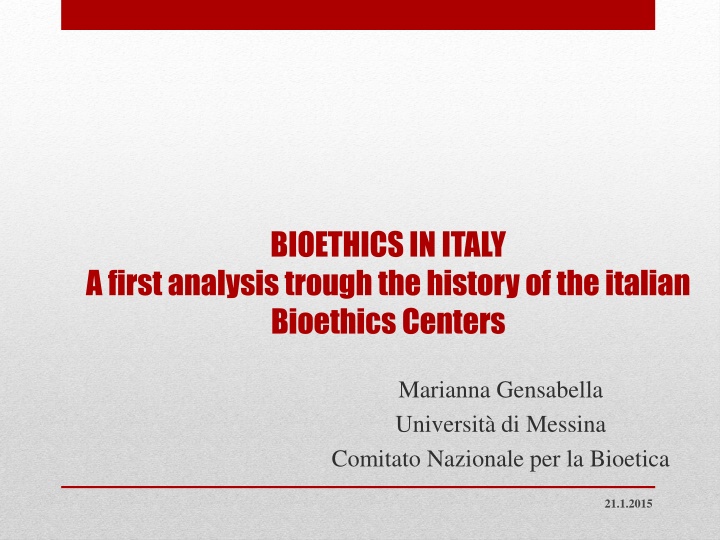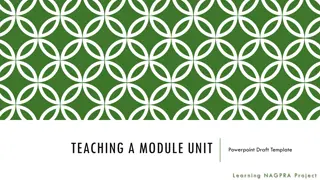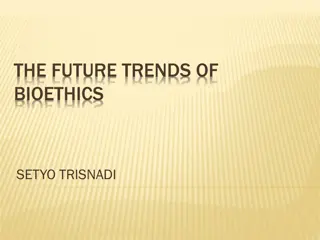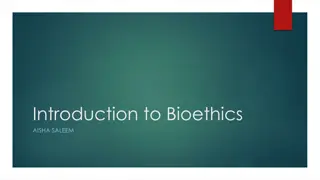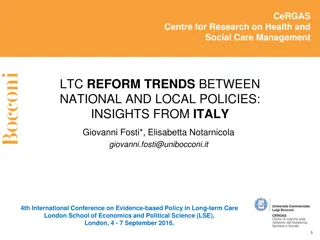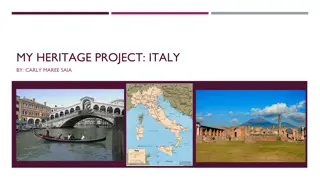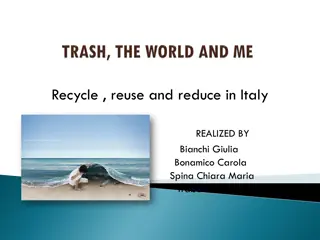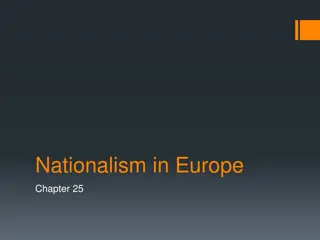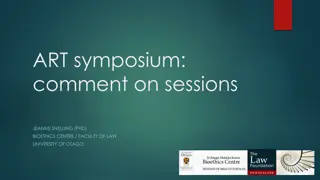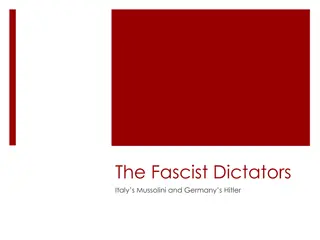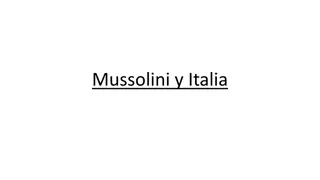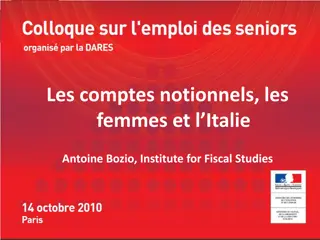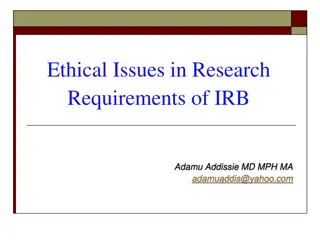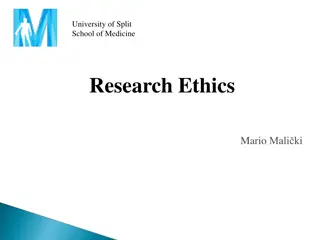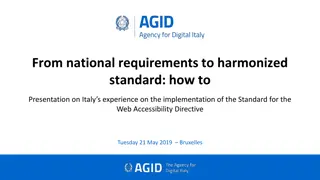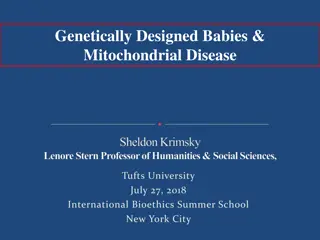Evolution of Bioethics in Italy: A Historical Analysis
Italian bioethics has evolved through distinct phases, from a pioneering period in the 1970s to a more structured institutional phase starting in the 1990s. The debate between Catholics and secular perspectives has shaped bioethical discourse in Italy, with various Centers playing a vital role in research, training, and information dissemination.
Download Presentation

Please find below an Image/Link to download the presentation.
The content on the website is provided AS IS for your information and personal use only. It may not be sold, licensed, or shared on other websites without obtaining consent from the author.If you encounter any issues during the download, it is possible that the publisher has removed the file from their server.
You are allowed to download the files provided on this website for personal or commercial use, subject to the condition that they are used lawfully. All files are the property of their respective owners.
The content on the website is provided AS IS for your information and personal use only. It may not be sold, licensed, or shared on other websites without obtaining consent from the author.
E N D
Presentation Transcript
BIOETHICS IN ITALY A first analysis trough the history of the italian Bioethics Centers Marianna Gensabella Universit di Messina Comitato Nazionale per la Bioetica 21.1.2015
The first phase First of all, we can see a pioneering phase of italian bioethics: from the early 70s to 1985 ( the end of Santosuosso s Comission, declaring intersepcific fertlization experiments illegal): bioethics tries to show that its problems are serious, seeks to gain cultural credibility Since 1986 the word bioethics begins to be used by the mass media. Maurizio Mori defines this phase of italian bioethics as the nascent or totipotent phase, as embryonic life. It is a fluid phase, with many conferences and debates, but without official positions, schools, models of bioethics.
The second phase: starting from the 90s Since the 90s we have a more structured, institutional phase The Italian Committee for Bioethics (ICB) was established by a decree signed by the President of the Council of Ministers, with the task of expressing opinions, and also for the purpose of preparing legislative acts, to address the ethical and legal problems that may arise as a result of the progress in scientific research and technological applications on life ( the first President wasAdriano Bompiani). The chair of Bioethics was established at the Catholic University of Rome ( Professor Elio Sgreccia). The first chair of Bioethics at the state university was held at the University of Messina ( Professor Demetrio Neri). The first PhD in Bioethics was established at the University of Genoa (Coordinator Professor Michele Schiavone).
The debate between Catholics and lay people The debate between Catholics and lay people marks italian bioethics from the very begining. This debate is lively, but also often conflicting and ideological ( see G. Fornero, Bioetica cattolica e bioetica laica, Mondadori 2005). The Catholic world begins earlier with cultural promotion initiatives and institutional committments (see in particular the activities of the Institute of Bioethics at the Catholic University of Rome, but also the projects at the San Raffaele Hospital Scientific Institute and at the Lanza Foundation) The secular world moves a little later and more slowly, especially on the institutional level ( see in particular the activities of Politeia ) However, there are also spaces of dialogue, in Italian bioethics, under the banner of pluralism.
The Centers of Bioethics and the life of italian bioethics Several Bioethics Centers have sprung up in Italy since the mid-1985, with the purpose of organizing activities in the fields of research, training, information and documentation. We find them with the names of Center, Laboratory, Project, Institute: for uniformity, we call them Centers. Their story is an integral part of the history of bioethics in Italy Let s try to reconstruct it using the following text for the history of the Centers up the 1993/95 A. BOMPIANI, Bioetica in Italia, Edizioni Dehoniane Bologna 1992 C. VIAFORA (ed.), Centri di Bioetica in Italia, Fondazione Lanza, Gregoriana Libreria Editrice, Padova 1993 G. RUSSO (ed.), Storia della bioetica, Armando Editore, Roma 1995 M. SOLDINI, Argomenti di bioetica, Armando Armando, Roma 1999. For the following years we will be based on interviews with the directors of the Centers still active and those activated after 90s
The Catholic Centers of Bioethics in Italy from 1985 to 1993 The Institute of Bioethics at the Catholic University of Rome, established in 1985 as a Center, it became an Institute in 1992 ( Director Elio Sgreccia) The School of Medicine and Medical Humanities of San Raffaele Hospital ( Milano), founded in 1982 on the initiative of Don Luigi Verz , founder of the Hospital, in 1992 the School took on the name of the Department of Medicine and Human Sciences ( Director Palo Cattorini) The Ethics and Medicine Project of the Lanza Foundation, was launched in 1988 as part of the research and training activities of the Lanza Foundation (Coordinator Corrado Viafora). The Sicilian Institute of Bioethics, founded in 1991 by Salvatore Privitera as an Institute of the Sicilian Theological Faculty, in 1998, it acquired its own autonomy, with tow offices, Palermo and Acireale. The International Family Studies Center, founded by the Paulines, directed from 1986 to 1990 by Sandro Spinsanti, the Center focused its activities in those years on bioethics. The Bioethics Laboratory, founded in 1993, as research body of the Bioethics Committee of the Messina Catholic Doctors Association, later becoming an indipendent body (Director Giovanni Russo)
Centers of lay/secular inspiration Politeia, a non-profit association founded in 1983 with the aim of promoting reflection on ethics and public choices (Director Emilio D Orazio). In 1985 the Bioethcs section was born whitin Politeia ( Director Maurizio Mori). The Bioethics Center of Geova, founded in 1984 on the initiative of university professors from different research areas ( among the Directors we find Luisella Battaglia). The Italian Society of Bioethics, founded in 1987 at the Chair of Bioethics of the University of Florence ( Director Brunetto Chiarelli) The Bioethics Center of Gramsci Institute, born in 1988 whitin the Section of Theories and Methods of Science and the Section Phlilosophy of the Gramsci Foundation.
Trend Lines of the Bioethics Centers in this first phase There is a clear prevalence of clinical bioethics, especially in the major Catholic centers (Institute of Bioethics Catholic University, School of Medicine and Medical Humanities, San Raffaele Hospital, The Ethic and Medicine Project of the Lanza Foundation) and in major lay centers ( Politeia). There is an opening toward animal and environmental bioethics in Sicilian Insitute of Bioethics and in Laboratory of Bioethics. Centered on animal bioethics and environmental is the Bioethics Center of Genova, on environmental the Italian Society of Bioethics.
The life of the Bioethics Centers after 90 The life of the Centers is transformed or extinguished over the years, since it is linked to various factors, among which the presence of those who founded them, direct them, animated them, is fundamental. There are no longer active: The Center of Bioethics of Genova The Italian Society of Bioethics The Bioethics Center of Gramsci Institute The International Family Studies Center The School of Medicine and Medical Humanities, San Raffaele Hospital.
Transfromed Centers Some Centers have changed their name and director, while maintaining the same vision of bioethics and the same purposes: The Institute of Bioethics at the Catholic University of Rome, directed by Elio Sgreccia has become the section of the Department of Safety and Bioethics of the Catholic University of Rome, Bioethics and Medical Humanities, directed by Antonio G. Spagnolo. The same vision of bioethics and the same purpose can be founded in the University Center for Bioethics and Life Sciences of the Catholic University of Milan, directed for long years by Adriano Pessina and now by Massimo Antonelli. In the new Centers we can see a greater interest in environmental bioethics. The Sicilian Institute of Bioethics, directed by Salvatore Privitera, has become The Salvatore Privtera Institute of Bioethics, directed by Salvino Leone.
A separate case: The Italian Institute of Bioethics The Italian Institute of Bioethics was founded in 1993 in Genova, by Luisella Battaglia, who had been director of the Bioethics center of Genova. It cannot be said that the Institute is a transformation of that Center. While taking up a strong interest in animal and environmental bioethics, the Institute was born with a national vocation and spreads to various regions of Italy. Moreover, the Institute has a marked liberal and pluralist vocation with an openess to the Catholic world, which over the years failed the Center of Genova.
The Institute of Bioethics at the Catholic University of Rome Established in 1985 as a Center of Bioethics, it became an Institute in 1992, under the direction of Elio Sgreccia The vision of bioethics that inspires the activities of the Institute is ontologically founded personalism of Thomist inspiration. It is an ethical vision that places the person, considered coincident with the human being,at the center, in an ontological perspective open to metaphisics. This perspectives is applied to biomedical and social issues ( see E. Sgreccia, Manuale di Bioetica, voll. 2, Vita e Pensiero, Milano 1988 (1 ed). The Institute carries out multiple training activities, including: course, seminars, conferences, the first specialization course in Bioethics ( 1989-90) and the first PhD in Bioethics (1991/92) The journal Medicina e Morale and the editorial series of Scienza, medicina etica edited by Vita e Pensiero are conncected to the Institute
Bioethics and Medial Humanities The activity of the Institute of Bioethics continues today with the same vision of bioethics in the section of the Department of Safety and Bioethics of the Catholic University of Rome, Bioethics and Medical Humanities, driected by Antonoio G. Spagnolo.
POLITEIA Politeia is a non-profit association founded in 1983 with the aim of promoting reflection on ethics and public choices. Since 2014 the headquarters of the Center has been the University of Milan. Director of the Study Center is Emilio D Orazio. Politeia s research programs are chracterized by interdisciplinarity and by adherence to methodological individualism and the theories of rational action. In 1985 the Bioethcs section was born whitin Politeia, which has had Maurizio Mori as its manager from the beginning to today. It was one of the first Italian research centers in this sector. The Bioethics section carries out an intense scientific and cultural activity under the banner of interdisciplinarity and the comparison between different positions, in compliance with ethical pluralism. The activity is twofold: theoretical study and seminars for scholars and operators; cultural promotion with conferences and publishing activities The Master in Rational Decisions and Public Ethics was launched in 1991 and only had a second edition in 1993/1994. Since 1995 the Association has published the quarterly, interdisciplinary journal Politeia , available in Italian and in English
The School/Department of Medicine and Medical Humanities of San Raffaele Hospital ( Milan) slide n.1 The School, was founded in 1982 on the initiative of Don Luigi Verz , founder of the Hospital, and the collaboration of pilosophers and theologians. In 1987 Paolo Cattorini took over it. In 1992 the School took on the name of the Department of Medicine and Human sciences. It is one of the first italian centers of resarch and training in Philosophy of Medicine, ethics of medicine, bioethics and medical humanities. Its vision of bioethics is inspired by a personalist anthropology open to a pluralist dialogue with otther visions The School/Department carries out multiple training activities, including: course, seminars, conferences, the European Day of Bioethics, and a specialization course in Bioethics ( 1989-90) and the first PhD in Bioethics (1991/92). An international center on ethical, jurical and medico-legal problems relating to AIDS has been established at the School was founded by Paolo Cattorini in 1987 See. P.CATTORINI, Profilo della scuola di Medicina e scienze umane. Educare ad un intenzione antropologica,in Sanare Infirmos , 3, 1988, 19-23.
The School/Department of Medicine and Medical Humanities of San Raffaele Hospital ( Milan) slide n.2 The School partecipates in the European Association of Ethical Medical Centers. An Italian Society for Bioethics and Ethics Committees was set up at San Raffaele to coordinate the activities of Ethics Committees in Italy. An important intiative was alsothe dialogue with the Consulta di bioetica e Politeia The journals Sanare Infirmos and Kos and the editorial series of Medicina e Scienze umane edited by Europea Scienze Umane Editrice are connected to the School. After the 1998-1999 there are only activities in the bioethical field of scholars of the Department at an individual level. interview with Massimo Reichlin
THE ETHICS AND MEDICINE PROJECTS OF THE LANZA FOUNDATION The Ethics and Medicine Project was launched in 1988 as part of the research and training activities of the Lanza Foundation. Responsible was Paolo Benciolini, Corrado Viafora coordinated the research. The cultural horizon of the Project is marked by the need for an ethical management of biomedical progress and for a rational foundation of ethics, and by the practice of a multidisciplinary approach. The Project shares the classical principle of bioethics: autonomy, beneficence and justice. These principles, interpreted in the light of personalism, are translated respectively into the principles of: human dignity, globality of care, solidarity. The Project is committed to two objectives: the recognition of the orientations of contemporary bioethics, which has led to international meetings and study days on bioethics in Italy, and the activation of a Bioethics Laboratory for permanent training. The materials produced are collected in the series quaderni di Etica e Medicina , edited by Gregoriana Editrice
THE BIOETHICS CENTER OF GENOVA TheBioethics Center of Geova was founded in 1984 on the initiative of university professors from different research areas: from philosophy to law, from medicine to social sciences. Among the directors and the main representatives we find Luisella Battaglia The Center has a secular orientation and pursues a vision of bioethics that does not limit attention to human life, but includes everithing that is living and, by extension also the environment The Center carries out multiple training activities, including: course, seminars, conferences. After the resignation in 1992 of Luisella Battaglia, due to the perception of a lack of pluralist openess, in particular towards the Catholic world, the Center suffered a setback. The same vision of bioethics extended to the entire living world will be taken up by the Italian Institute of Bioethics founded by Luisella Battaglia in 1993.
THE ITALIAN INSTITUTE OF BIOETHICS slide n.1 The Italian Institute of Bioethics was founded in Genoa in 1993 by Luisella Battaglia, with the intention from the beginning to spread throughout Italy. Currently the Institute is present in vaious Italian regions: Liguria, Campania, Sicilia, Marche, Puglia, Emilia Romagna, Trentino Alto Adige, Toscana. The vision of bioethics of Institute is marked by three fundamental characteristics: it is liberal , according to J.Stuart Mill, attentive to an authentic pluralist openess, beyond the contradictions between lay people and Ctholics; global , addressed to the whole living world, according to Fritz Jahr s first idea of bioethics; complex , wanting to expand the methodological horizon of bioethics beyond the approach of V.R. Potter, opening it to an ethics of difference and care that is inspired by female and feminist thought.
THE ITALIAN INSTITUTE OF BIOETHICS slide n. 2 The Italian Institute of Bioethics carries out multiple training activities, including: course, seminars, conferences. Attentive to the public ethics dimension of bioethics, the Institute has been carrying out, in particular, since 2001, with the patronage of the Italian Comittee of Bioethics, the organization of the School s Bioethics Days, dedicated to the training of young generations, and since 2017 the Festival of Bioethics, organized by the Ligurian Section with the patronage of Italian Committee of Bioethics and aimed at activating the public debate on the main bioethical issues.
THE SICILIAN INSTITUTE OF BIOETHICS The Sicilian Institute of Bioethics was founded in 1991 by Father Salvatore Privitera as an Institute of the Sicilian Theological Faculty. In 1998, it acquired its own autonomy, constituing itself as an association with tow offices, Palermo and Acireale. The logo, the open shell with a pearl inside signifies its primary purpose: to guard and promote the pearl of life . Another purpose that characterizes the Institute is its vocation to a mediterranean bioethics , which, returning to Sicily its vocation as meeting between different peoples and cultures, makes the Institute a place of dialogue between Bioethics Centers and of mediation between European and Mediterranean cultures The Institute has carried out many activities in the field of research, training, cultural promotion and consultancy. The journal Bioetica e cultura and the serie Collectio bioethica are directly linked to the research activity of the Institute.
THE SALVATORE PRIVITERA INSTITUTE OF BIOETHICS The Salvatore Privitera Institute of Bioethics was founded in Palermo in 2007, tow years after the death of Father Privitera, due to the difficulties of managing the two separate offices in Palermo and Acireale. The Institute is a direct subsidiary of the first, founded by Privirera and has as director his close collaborator, Salvino Leone, maintains the same aims, as is also shown by the close similarity of the logo The Institute carries out its activities in the fields of information, training ( masters and courses, public debates, conferences) and research. The Institute publishes the journal Bio-ethos and is the owner of the publishing house Il Plattano di Ippocrate .
THE ITALIAN SOCIETY OF BIOETHICS The Italian Society of Bioethics, founded in 1987 at the Chair of Bioethics of th euniversity of Florence ( Director Brunetto Chiarelli) Its idea of bioethics is based on a line of thought that sees ethics founded on natural bases, a biological caracteristic, devloped by natural selection. Close to Potter, but not entirely coincident with Potter s bioethics, this bioethics is conceived as a biological and naturalistic science with ecological relevance with the aim of survival. Connected journal: Problemi di Bioetica ; from 1992 with the new name : Global bioethics( Problemi di Bioetica).
THE INTERNATIONAL FAMILY STUDIES The International Family Studies Center is a center founded by the Paulines. Directed from 1986 to 1990 by Sandro Spinsanti, a well-known scholar of bio- medical ethics, the Center focused its activities in those years on bioethics, always starting from its perspectives, that of the family. Spinsanti opened the bioethical reflections of the Center to the comparison with the anhropological approach of medicine and with the transpersonale approach. The activities of the Center were aimed at the organization of workshops, conferences, training courses. After the end of the direction of Spinsanti, in 1990, attention to bioethics no longer seems to be among the prioirties of the Center.
BIOETHICS CENTER-GRASCI INSTITUTE The Bioethics Center of Gramsci Institute was born in 1988 whitin the Section of Theories and Methods of Science and the Section Phlilosophy of the Gramsci Foundation. Its purpose is to create a place of public discussione on the main questiones posed by the sciences of life. The Center has a specific political purpose: to allow a greater, free information that leads to laws that safeguard scientific autonomy. The Center also pay attention to the issues of femminism. Its activities : conferences, seminars, debates, pubblications
The Bioethics Laboratory of Messina The Bioethics Laboratory was founded in 1993 in Messina , as research body of the Bioethics Committee of the Messina Catholic Doctors Association, later becoming an indipendent body. The Laboratory is based at the Theological Institute of St. Thomas of the Salesian Pontificial University. Its director has been form the beginning to today Don Giovanni Russo. The Bioethical vision underlying the Laboratory s activities is based on the centrality of the human person, on respect for human rights and on a Potterian, global perspective of bioethics. The Laboratory has carried out many activities in the field of research and training, giving rise to the Higher School of Specialization in bioethics and Sexology, whitin which two Masters in Bioethics and Sexology were born, one lasting two years and the other of annual duration. Several conferences took place. Many pubblications collected especially in the series Culture and life , Soldarity Bioethics , Evangelium Vitae .
